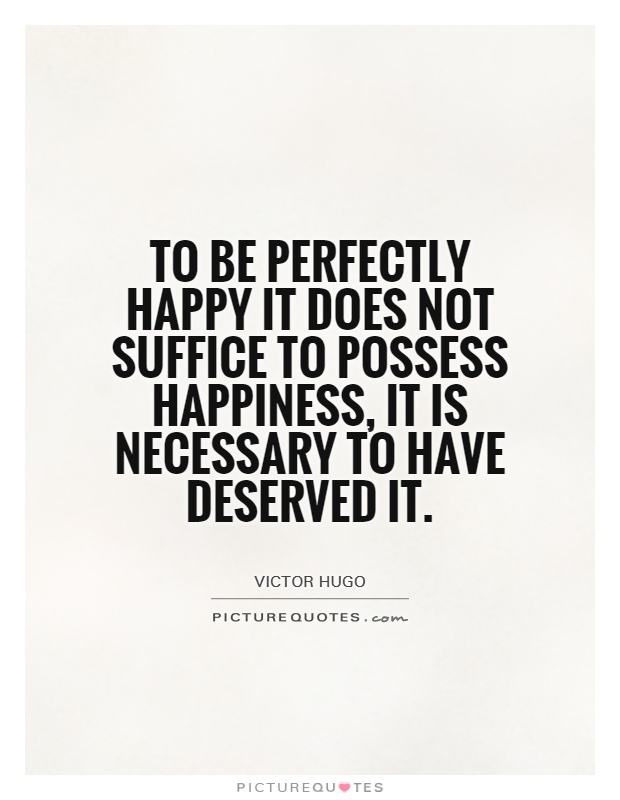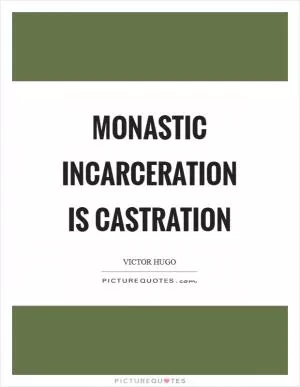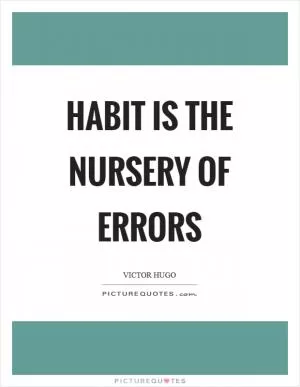To be perfectly happy it does not suffice to possess happiness, it is necessary to have deserved it

To be perfectly happy it does not suffice to possess happiness, it is necessary to have deserved it
Victor Hugo, the renowned French writer, poet, and playwright, is often remembered for his profound insights into the human condition and the complexities of life. One of his most famous quotes, "To be perfectly happy it does not suffice to possess happiness, it is necessary to have deserved it," encapsulates his belief that true happiness is not simply a fleeting emotion or a temporary state of being, but rather a deep and lasting sense of fulfillment that comes from living a life of purpose and integrity.Hugo's words remind us that happiness is not something that can be acquired through material possessions or external circumstances alone. While wealth, success, and good fortune may bring temporary joy and satisfaction, true happiness comes from within, from a sense of inner peace and contentment that can only be achieved through hard work, perseverance, and moral integrity.
In Hugo's view, deserving happiness is not just about being a good person or following the rules of society; it is about living a life of purpose and meaning, of striving to make a positive impact on the world and leaving a lasting legacy that will endure long after we are gone. It is about being true to ourselves and our values, and never compromising our principles for the sake of temporary pleasure or convenience.
Hugo's own life was a testament to the power of deserving happiness. Despite facing numerous personal tragedies and setbacks, including the loss of his daughter and exile from his homeland, he remained steadfast in his commitment to his art and his beliefs. His works, such as "Les Misérables" and "The Hunchback of Notre-Dame," continue to inspire and move readers around the world, long after his death.












 Friendship Quotes
Friendship Quotes Love Quotes
Love Quotes Life Quotes
Life Quotes Funny Quotes
Funny Quotes Motivational Quotes
Motivational Quotes Inspirational Quotes
Inspirational Quotes